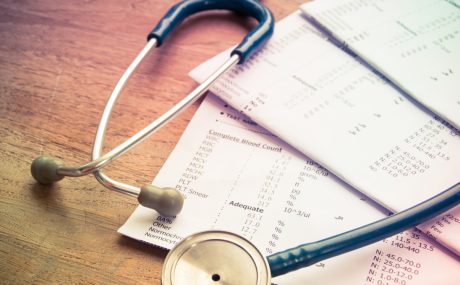The evidence provided by an expert is pivotal in determining issues of liability in injury and medical negligence cases and is essential to a successful claim.
In the second of this three-part series of articles for expert witnesses, partner Hugh Johnson and senior paralegal Dulcie Osborne consider the elements of liability expert reports in a clinical negligence context. They also discuss how to deal with developments in the evidence available to the expert during the claim and disputed evidence.
Instructions to the expert
Experts can be instructed to produce reports in many forms, including:
- Background advice/comment (with no formal report)
- An initial advisory report
- A formal court report before or after the commencement of proceedings on a single basis, and
- A formal court report prepared for the parties on a joint basis by agreement between them.
When instructed by Stewarts to prepare a first report, experts will usually be asked to prepare a written draft opinion, not a report for the court. It is common for reports to be updated and experts to revise their reports as information becomes available or the exact issues in dispute are refined as the investigations progress. Without preliminary advice being marked as an advisory report, despite the protection of legal privilege, there is a risk the court could compel disclosure of earlier (and possibly incomplete or unapproved) versions, if the report is addressed to the court.
The opinion given throughout the report must always be yours, ie the expert’s. That opinion will be tested by counsel and the solicitor in discussions in a first case conference and as the claim progresses. In complex claims, the coming together of experts from different disciplines may introduce new ideas and cause you to refine your views. The other side’s experts or witnesses may also introduce unanticipated issues or concepts. Needless to say, further discussion and information may change your view. If it does, you should raise this with the instructing solicitor immediately.
Preparing a final liability report is complex and rarely involves preparing a single report with no further steps required. It is common to ask experts to clarify elements of their opinion or add references, be they literature, medical records or imaging.
You must carefully consider why you hold the opinion set out and, in relation to a breach of duty, whether the care was substandard, even if you would have done things differently. The crucial test to bear in mind is whether you would be able to justify that view in court under cross-examination. The court environment can be challenging and even uncomfortable on occasion. It will be unforgiving to an expert who has not carefully considered the opinions expressed and who cannot support them. In Muyepa v Ministry of Defence [2022] more than one expert was required to make so many concessions at trial as to be discredited. In relation to two of the experts, Mr Justice Cotter noted: “I doubt either [expert] would be anxious to relieve their experience of giving evidence.”
That is not to say an expert will be criticised if a court prefers one expert over another. In Shally v Imperial College Healthcare NHS [2023], the neurosurgeons in the case held different views on whether a surgical procedure was safely performed. They were both able to support the conclusions drawn. The defendant’s expert evidence was preferred, but it was recorded in the judgment that both experts were impressive, doing their best to assist the court.
If the legal team raises queries that are not immediately answerable or require further thought or research, those should be flagged up. That way, there is an opportunity to revisit them at a later date.
Materials provided
Experts should always ensure they have all the information required to prepare their report with the instructions. That will require a review of the records and imaging to ensure they are complete and an analysis of what supporting documentation may be available.
It is not uncommon for radiology requests to be omitted from the clinical records. Hospital DATIX forms and investigations are rarely filed with patient records. Hospital protocols or national policy may also assist when determining whether the standard of care provided was reasonable.
If, as an expert, you believe vital documents are missing or the case would benefit from additional expert evidence, you should discuss this with the instructing solicitor as soon as possible. In Hertfordshire CC v Mother & Others [2022], a neurologist attended court to give evidence and was obliged to admit he had not been able to access a CD of radiology images (presumably because the disc was corrupt or password protected). The CD was central to the litigation, which concerned brain injuries to an infant child. Given the importance of that evidence, he was, unsurprisingly, criticised for failing to raise this with his instructing lawyers before the final hearing.
As the litigation progresses, experts will often be asked to update their reports to reflect new information. Witness statements from treating clinicians are usually exchanged long after the first instruction. For example, in Muyepa (a case in which a dishonest claimant hampered the experts), there was little criticism of the experts in relation to their initial reports. Rather, it was the failure to prepare supplemental reports and re-evaluate their position in light of surveillance footage and other evidence that resulted in the experts being subject to trenchant criticism. It would have been appropriate to serve a supplemental report or letter to address their change of opinion.
Breach of duty and causation
In the expert’s instructions, the solicitor will set out the matters to be addressed within the report. The terms “breach of duty” (ie whether the care provided was in accordance with a responsible body of medical opinion) and “causation” (ie whether the error or substandard care directly caused the harm) have become highly familiar to experts. These are usually challenging issues to consider, particularly where there is more than one approach to patient care.
Collectively, breach of duty and causation issues may be referred to as liability. While it is common to hear the term ‘liability’ being used as a synonym for an error or breach of duty alone, that is inexact and should be avoided. Unless the causal link to the injury is also proven, liability will not be established, and a claim will not succeed.
Some experts will be retained to consider a single issue, whereas others may be asked to address both breach of duty and causation. For example, a GP expert may be asked only to opine on the standard of care provided at a consultation; a neurosurgical expert may be asked to comment on the surgery performed at hospital two days later, as well as the possible outcome had surgery been undertaken soon after the GP consultation. In this way, the experts are “mirroring” the expertise of those caring for the claimant and together addressing the two essential components.
A detailed analysis of the legal tests and case law is beyond the scope of this article. Clinical negligence claims are different from other types of injury claims as the standard being addressed is that for professional negligence, which can be a high bar to meet. The central elements of the law have remained largely unchanged for some years, but with refinement to reflect more modern standards and societal change. Some of the key cases are set out below:
- Bolam (1957) – The standard for all professional negligence cases and states that care must be provided to the standard of a responsible body of other professionals of that discipline.
- Bolitho (1996) – Modified the Bolam test by providing that even if a body of other professionals would have undertaken care in the same fashion or to the same standard, it must nevertheless be a practice that withstands logical scrutiny.
- Montgomery (2015) – Sets out the relevant standard for consent, which requires a full analysis and engagement with the patient to consider risks/benefits with no presumption as to what the patient should do. Subsequent judgments have provided further refined the scope of the duty.
- Williams v Bermuda Hospitals Board (2016) – A Privy Council judgment that addresses the concepts of “indivisible injury” and “material contribution”. A claimant may still be able to recover damages where there are multiple contributing factors to the injury where the contribution is more than negligible.
Bolam is the core test to be met if clinical negligence is to be established. Nevertheless, Montgomery has significantly widened the duties of clinicians to discuss risk with the patient and ensure they fully understand and agree to the care/procedures contemplated. However, it is clear that despite fears from healthcare providers and defence organisations, consent cases have not dominated the court’s attention.
The alleged failures of care will be specific to each case. However, errors can be made amounting to a breach of duty that did not cause any injury or did not directly lead to the outcome. For example, errors could be made during A&E care in the treatment of a head injury, but in the context of a patient for whom deterioration or a poor outcome was inevitable because of the initial trauma.
Alternative care and hypothetical timelines
In many cases, having identified a failure of care, it will also be necessary to evaluate a hypothetical timescale as to when an alternative treatment course could have been followed. That process involves an estimation to the civil standard of proof, ie on the balance of probabilities. Experts can rely on several sources to express that opinion. Those could be hospital protocols, literature or their experience of professional practice. It can often be necessary for causation experts to comment directly on the care and also assist the legal teams with research and publications that support the expert’s view as to why the alternative care would have been efficacious and a potentially permanent injury avoided.
The hypothetical analysis will require an expert to evaluate not only the care and the ideal treatment but also when it could sensibly have been provided within the context of the medical provider in that location and at that date and time. For example, a city teaching hospital may have access to 24-hour MRI scanning facilities that a regional hospital does not. A hospital that provided trauma care to mass casualties after a coach crash or terrorist incident may be able to defend providing slower care to patients who had urgent healthcare needs but who did not, nonetheless, have immediate life-threatening conditions.
It is not unknown for there to be a range of scenarios for referral or treatment, which in turn have a range of possible outcomes for the claimant as to what level of injury could have been avoided. One of the early tasks in such cases will be to determine which of those alternatives is most likely to have occurred.
Factual disputes
Frequently, there will be a dispute between the parties as to what occurred. This will usually be apparent from conflicting witness statements. It is for the court, not you as an expert, to determine what occurred (ie to make a finding of fact). It may be possible to determine which sequence of events you consider more likely; however, care will need to be taken not to usurp the court’s function.
In cases where there are challenging factual disputes, you may need to express your opinion with alternative scenarios. For example, “If it is correct that X occurred at 23:50, then… But if it is correct that X occurred only at 01:50, then…” This leaves it for the court to resolve the disputed factual issues.
Finally, it can be helpful for experts to remember that one of the client’s key goals in pursuing a claim is often to understand what has happened and why. Despite the legal requirement of a duty of candour, patient experiences of care after an adverse event are patchy. The first liability expert instructed in a case holds a privileged position in that they will provide the client (possibly for the first time) with an independent and objective explanation of the care provided and what may have gone wrong.
You can find further information regarding our expertise, experience and team on our Clinical Negligence page.
If you require assistance from our team, please contact us.
Subscribe – In order to receive our news straight to your inbox, subscribe here. Our newsletters are sent no more than once a month.




